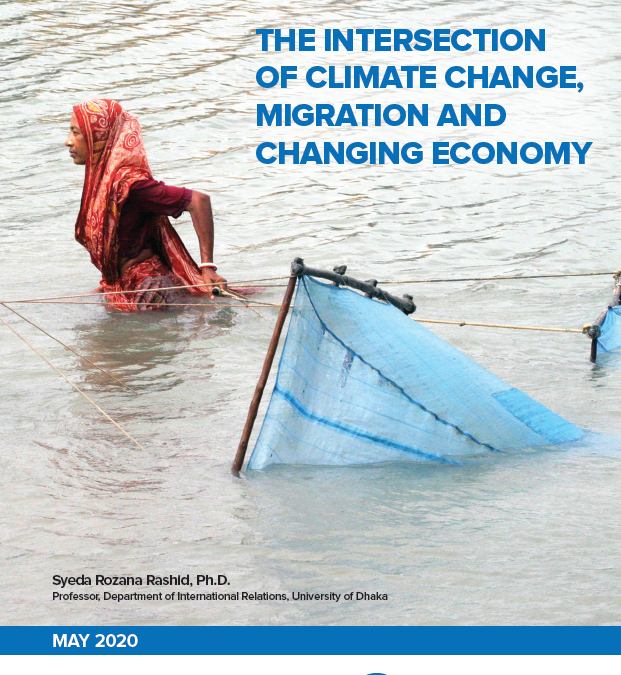Underscoring the immediate risk of severe climate-induced weather events in South Asia, Cyclone Amphan last month slammed into the coast of eastern India and southern Bangladesh, destroying thousands of homes and killing at least 88 people. A new Solidarity Center report points to other, longer-term risks for workers in the region as a result of climate change, including forced job changes and migration, and increased economic vulnerability.
As many as one in every seven–or at least 16 million—people in Bangladesh could be on the move by 2050, potentially causing the largest forced migration caused by climate change in human history. Bangladesh is one of the 10 countries most vulnerable to climate change, at risk from climate disasters such as floods and cyclones. Situated on a floodplain, with a low-lying coastline and a host of rivers, the country and its people are threatened by rising sea levels, flooding, riverbank erosion, cyclones, storm surges and ever-hotter summers. These phenomena are exacerbated by climate change and contribute to loss of livelihoods, migration and poverty.
Against this backdrop, the Solidarity Center conducted a study investigating the intersection of climate change, economic activity and migration in Khulna and Jashore, Bangladesh. The study used primary and secondary sources of data, including surveys and first-person interviews with 50 Khulna- and Jashore-based workers who were employed in shrimp and fish processing and hatcheries, transport and domestic work sectors, and returnee migrant workers.
The report finds that increased salinity and flooding has driven people of both areas into new economic activities—primarily away from previously profitable farming into poverty-wage, non-farm economic activities that study participants describe as a hand-to-mouth existence. Cross-border migration of people from Khulna and Jashore to India for better economic prospects was found to be common and recurring, with international migration growing. Workers forced to transition into new jobs were found to lack information, training and financial resources to adapt to employment changes, and were mostly relying on friends and family for information and other types of resources to find new jobs. There was a low level of understanding about climate change and how it impacts their own livelihoods and the local economy.
“Climate change is forcing already-vulnerable people into often exploitative, precarious and poorly paid work, including migrating abroad for unsafe jobs where their rights are often unprotected,” says Solidarity Center Senior Program Officer Sonia Mistry.
The report offers recommendations to mitigate the impact of climate change on workers in the region, including raising awareness among residents about the impact of climate change; devising strategies to recover bodies of water and develop equitable and sustainable land-use solutions; providing skills training for workers; and reducing wage discrimination between women and men.

